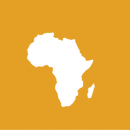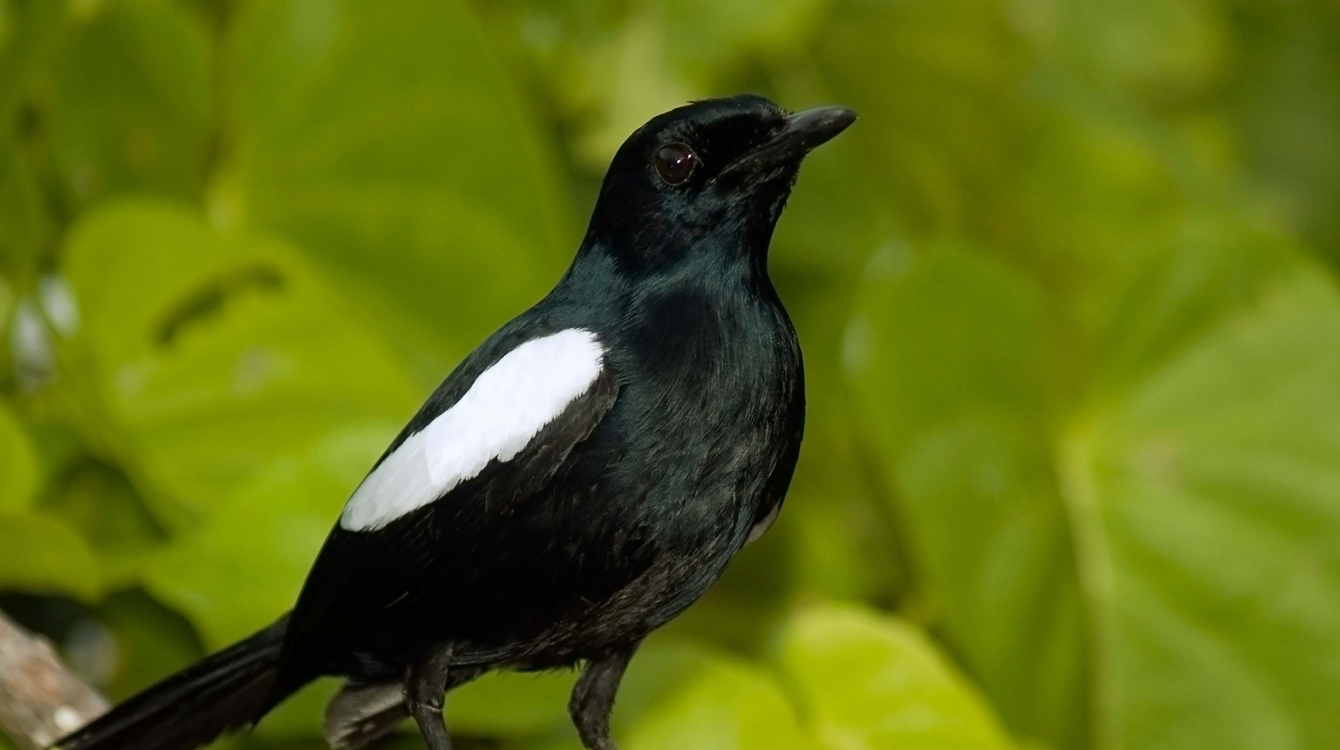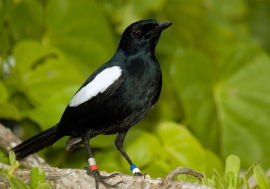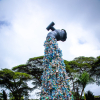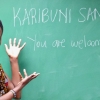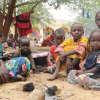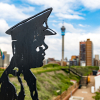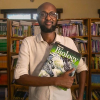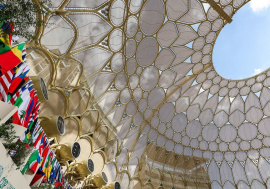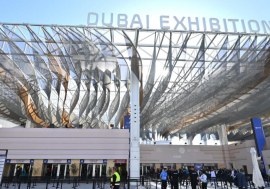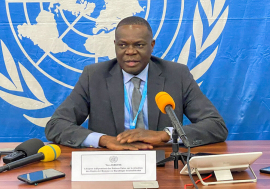COP15 of the UN Convention on Biological Diversity, currently underway in Montreal, Canada, is mulling ways and means to curb biodiversity decline with thousands of species at risk globally. Under this backdrop, Africa Renewal spoke to Dr. Nirmal Shah, a veteran conservationist from Seychelles who is saving some of the rarest birds in Africa and restoring degraded biodiversity on the Indian Ocean islands:
In 1998, Birdlife International and the Royal Society for the Protection of Birds (RSPB) approached Dr. Nirmal Shah to help set up a non-governmental organization that could become their partner in the Seychelles.
At the time, apart from Madagascar, the Seychelles had the greatest number of critically endangered birds of any African country that needed to be saved from extinction.
“There were only 19 individual birds of the Seychelles Magpie Robin left on Fregate Island, and the bird was destined for the dustbin of extinction, especially after rats invaded the island,” Dr. Shah recalls.
RSPB had allocated funds for the rescue of the species but could not manage it remotely from its headquarters in the United Kingdom. The society needed a local organization dedicated to managing the conservation initiative. This led to the creation of BirdLife Seychelles, headed by Dr. Shah.
It was not an easy task. “I realized that trying to save the Magpie Robin in isolation was a dead end. We needed to rewild entire islands,” Dr. Shah says.

Frustrated but unbowed he approached the Global Environment Facility (GEF) for funding. GEF is a partnership of UN agencies, multilateral development banks and national agencies, including non-governmental organizations.
To Dr. Shah’s delight, GEF advanced a grant for the avian species survival initiative.
Within a few months of BirdLife Seychelles’ inauguration, it was tasked with galvanizing grassroots, national and international support to help save other threatened birds. Among the threatened birds were the Seychelles Scops Owl, the Paradise Flycatcher, White eye and Warbler, all of which had been listed by the International Union for the Conservation of Nature (IUCN) as critically endangered.
“The project looked at causes of decline and action, including intensive research that led to amazing knowledge breakthroughs for the flycatcher and scops owl.
“It also kindled our collaboration with private island owners for restoring their islets and atolls to receive, nurture and multiply these species,” Dr. Shah recalls.
It was a great success. The Seychelles Magpie Robin population grew, enabling their translocation to three more restored islands.
Following the growth of the robin population and biodiversity restoration, GEF advanced a second grant to boost the species numbers. The grant targeted Denis’ island, one of the 115 isles that make up the Seychelles archipelago.
Additional support, under the Darwin project with the University of Kent, initiated reforestation and rewilding of Denis Island.
Modest flocks of Seychelles Magpie Robins, Warblers and Fody were translocated to several islands and a social awareness campaign was undertaken on La Digue island, which happened to be the only place on earth where the Seychelles Flycatcher persisted.
Ultimately, the group embarked on a translocation program of the Flycatcher to Denis Island, which was a significant conservation accomplishment.
“The Flycatcher is doing well,” says Dr. Shah. “Today, the IUCN Red List classifies it as critically endangered but no longer vulnerable,” which is a huge achievement,” he says. “We expect that the standing of the Seychelles Magpie Robin will improve too, as its population has grown more than fourfold on five islands since we started our work.
“Once predicted to go extinct, the Seychelles Warbler also has been removed from the endangered category of the IUCN Red List,” Dr. Shah says.
He describes the species survival and nature restoration work in the islands of Cousin, Denis, La Digue, Fregate, Praslin and others as “unprecedented in the world for a critically endangered species due purely to targeted conservation action.”
Ademola Ajagbe, the regional manager of The Nature Conservancy, calls the success achieved in Seychelles a “phenomenal feat in bringing globally threatened birds back from the brink of extinction and a clear demonstration that with the right conditions nature restoration works.”
Associate director at ICUN James Hardcastle praises Dr. Shah as one of the union’s leading global experts and a key member of the IUCN World Commission of Protected Areas and Species Survival Network, “for his remarkable triumph in rewilding islands and restoring biodiversity.
“His work in rewilding and recovering bird species is technical and complicated,” Mr. Hardcastle says. “Dr. Shah led the undertaking skillfully—from developing ideas, galvanizing political will and securing logistics to seeking international expertise and establishing a workable program for the islands and elsewhere.”
According to Mr. Hardcastle, “lessons learned from Cousin Island and other islands in the Seychelles during the last 60 years have inspired islands and conservationists the world over. It also has informed IUCN policy on everything from species reintroduction and effective protected area management work to island restoration and recovery.”

